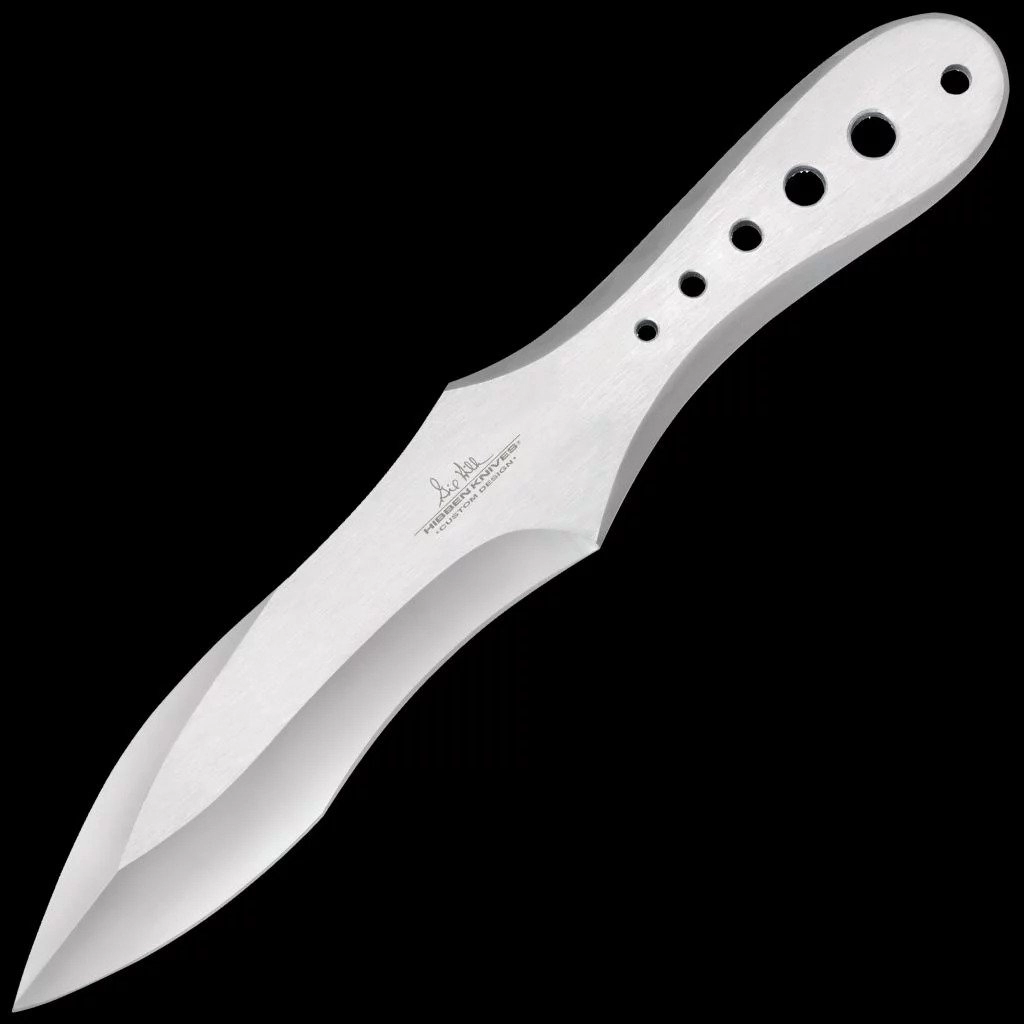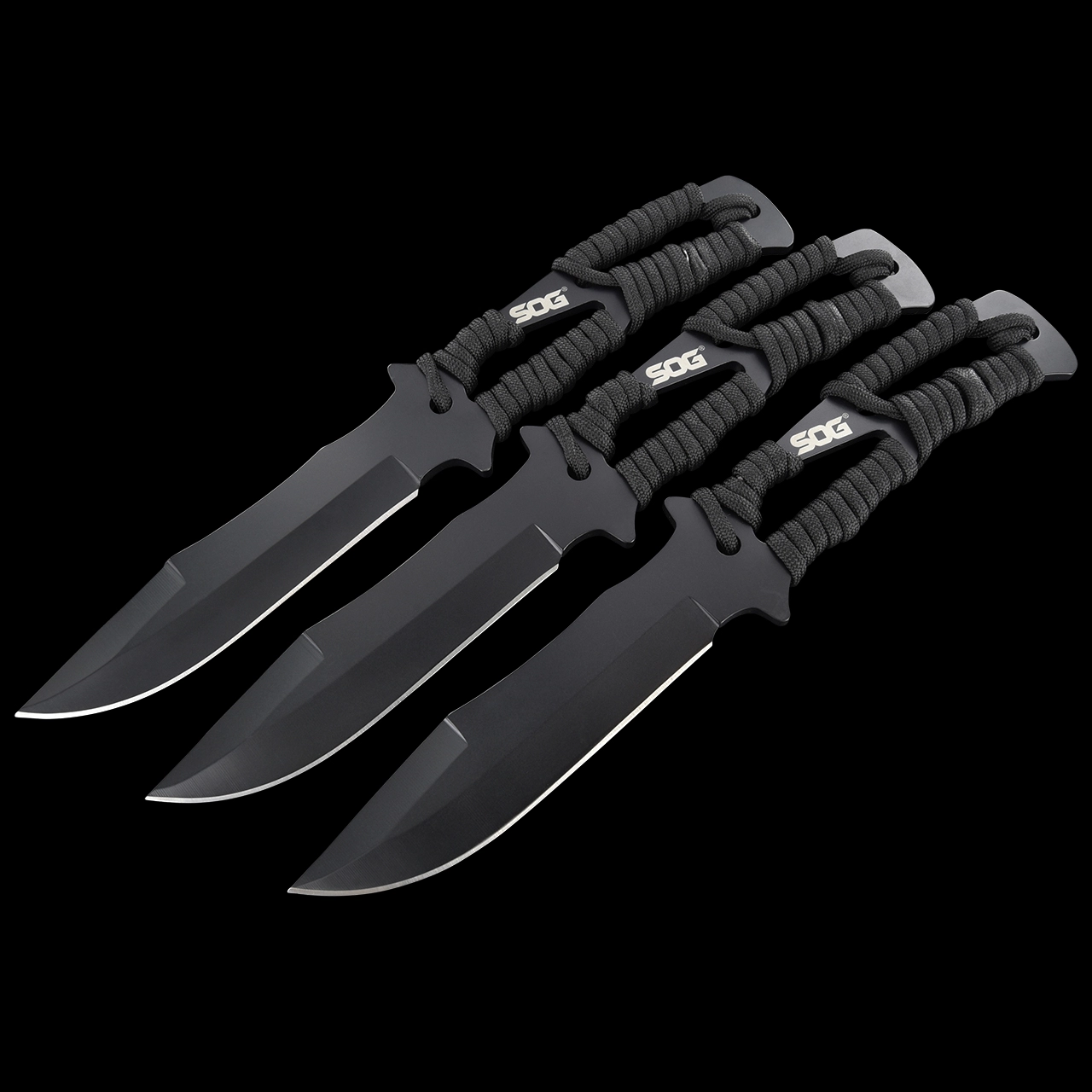In the world of survivalists and outdoor enthusiasts, having the right tools can mean the difference between life and death. The throwing knife is one such tool that has gained popularity over the years. These versatile and lethal implements have become essential for those who want to take their survival skills to the next level. In this comprehensive guide, we'll delve into the world of throwing knives, explore why they are crucial for survival, discuss the factors to consider when choosing the best-throwing knives for survival in 2023, and provide a list of top recommendations that will meet your needs.
Introduction
What are throwing knives?
Throwing knives are specially designed blades that are balanced for throwing. Unlike regular knives, these are crafted with a unique weight distribution and shape to ensure they fly accurately when thrown. They have a long history, originally used for hunting and self-defense, and have now found their place in the survivalist's arsenal.
Why are throwing knives important for survival?
Throwing knives offers various advantages in survival situations. They can be used for hunting small game, self-defense, and even as tools for building shelter or procuring resources. Their versatility makes them an invaluable addition to any survival kit.
What are the factors to consider when choosing throwing knives for survival?
Selecting the right throwing knife is crucial, and several factors must be taken into account:
Weight and balance
The weight and balance of a throwing knife are essential for accuracy and distance. Too heavy, and it won't travel far; too light, and it won't have enough force to hit the target. Balancing these factors is key to success.
Blade material
The material of the blade determines its durability and sharpness. High-carbon stainless steel is a popular choice due to its strength and resistance to corrosion. However, some prefer carbon steel for its sharpness.
Handle material
A comfortable and sturdy handle is essential for a secure grip when throwing. Materials like wood, rubber, or paracord-wrapped handles are common choices, offering a balance of grip and comfort.
Durability
Survival situations can be tough on equipment. Ensure your throwing knife is built to last, with strong construction and materials that withstand harsh conditions.
Sheath
A quality sheath keeps your throwing knife secure and easily accessible. Look for options that attach to your belt or gear for convenience.
Best Throwing Knives for Survival in 2023
Now that we've covered the essential factors to consider, let's dive into the top recommendations for the best-throwing knives for survival in 2023:
1. Smith & Wesson SWTK8CP Throwing Knives
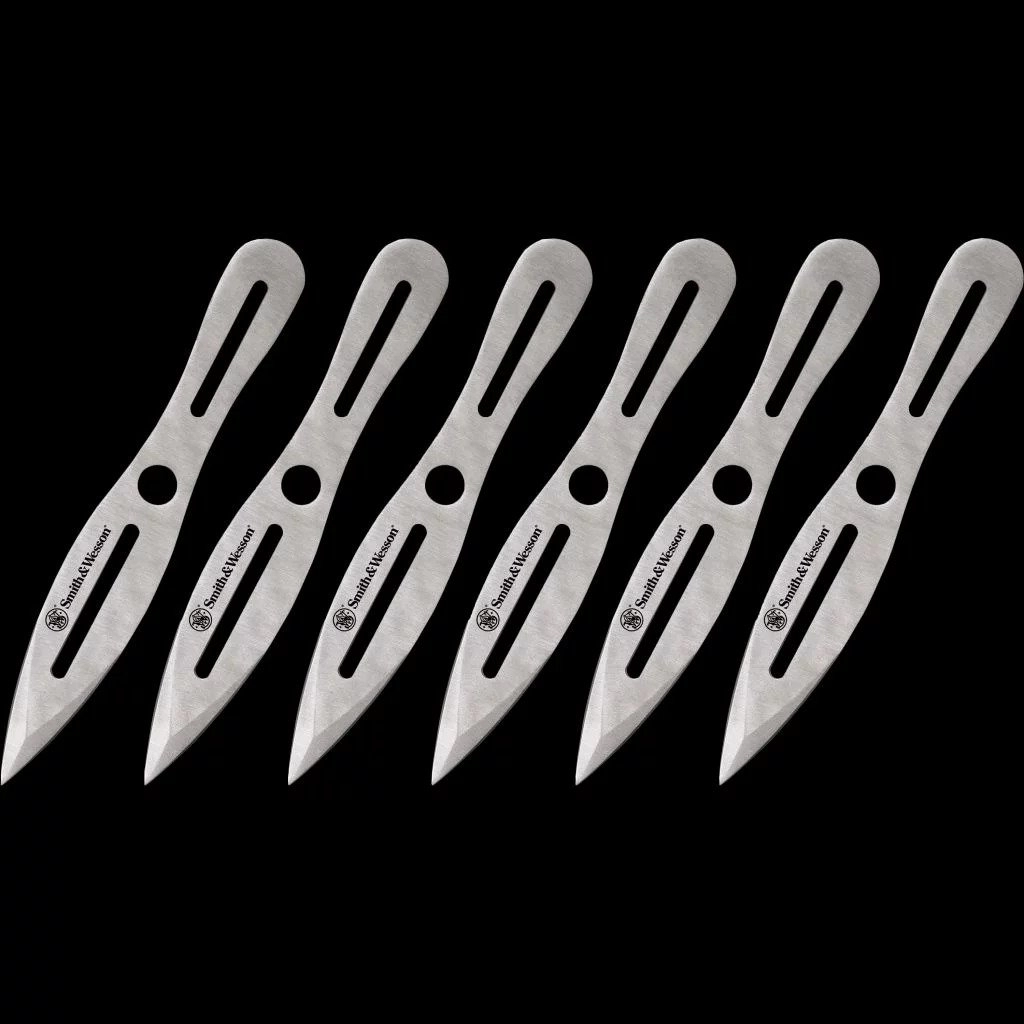
Weight: 4.7 ounces
Blade Material: Stainless Steel
Handle Material: 2Cr13 Stainless Steel
Durability: Excellent
Sheath: Nylon Belt Sheath
2. Cold Steel True Flight Thrower
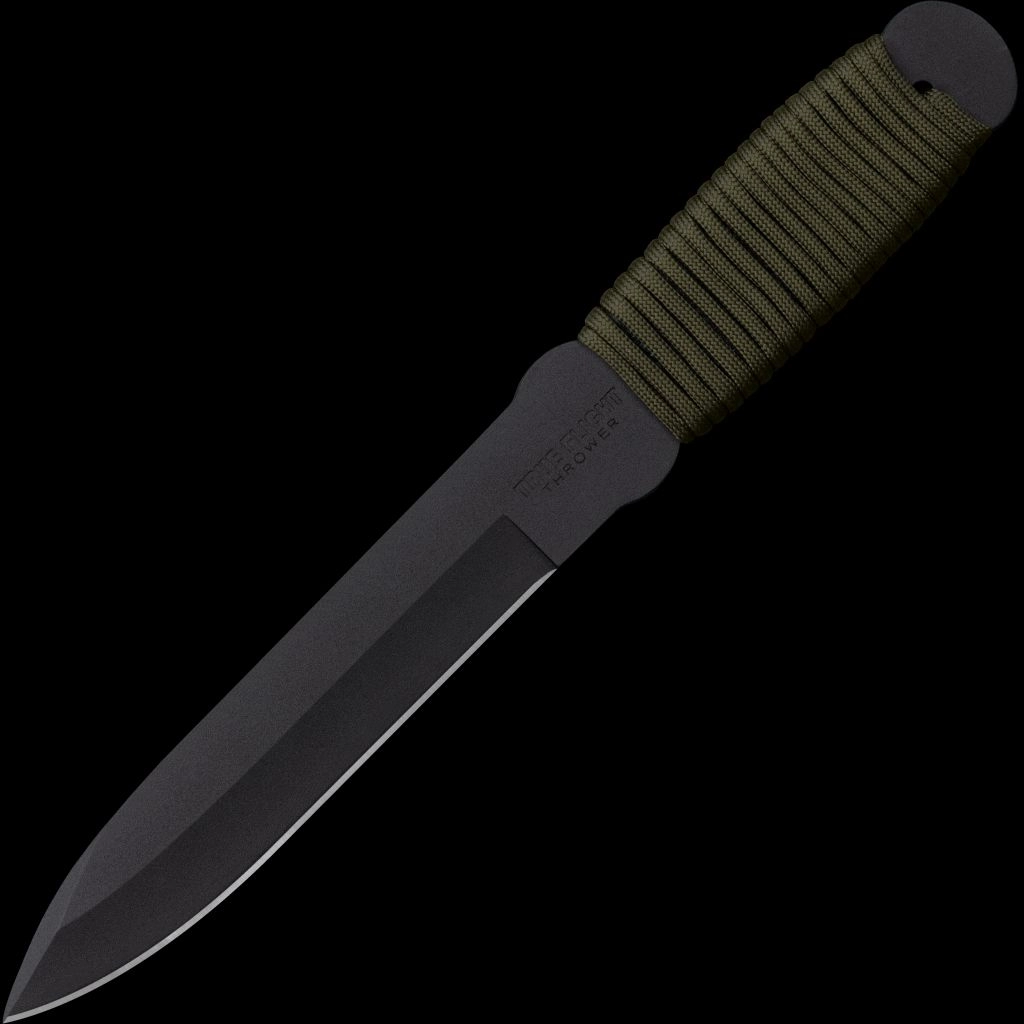
Weight: 9.7 ounces
Blade Material: 1055 Carbon Steel
Handle Material: Paracord-Wrapped
Durability: Outstanding
Sheath: Secure-Ex Sheath
3. Perfect Point RC-179 Series Throwing Knife Set
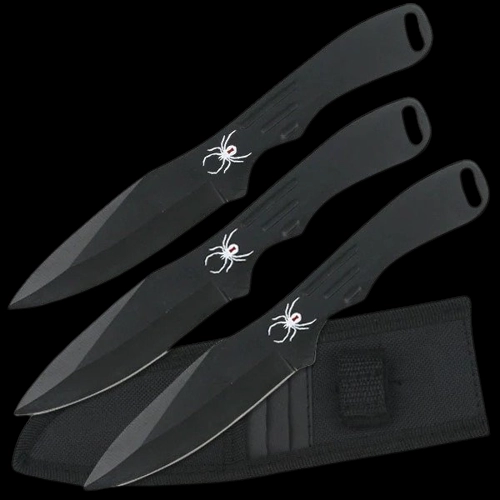
Weight: 5.3 ounces (per knife)
Blade Material: Stainless Steel
Handle Material: Cord-Wrapped
Durability: Very Good
Sheath: Nylon Sheath
4. Gil Hibben GenX Pro Throwing Knife Set
Weight: 5.6 ounces (per knife)
Blade Material: 3Cr13 Stainless Steel
Handle Material: Stainless Steel
Durability: Excellent
Sheath: Nylon Belt Sheath
5. SOG F041TN-CP Throwing Knives
Weight: 5.4 ounces (per knife)
Blade Material: 420 Stainless Steel
Handle Material: Hardcase Black
Durability: Very Good
Sheath: Nylon Sheath
Buyer's Guide: How to Choose the Best Throwing Knives for Survival
What to Look for in a Throwing Knife for Survival
When selecting the perfect throwing knife for survival, keep these factors in mind:
Weight and Balance
Ensure the knife's weight and balance suit your throwing style and strength. Practice with different knives to find your ideal match.
Blade Material
Choose a blade material that offers both sharpness and durability. Stainless steel and carbon steel are popular choices for their reliability.
Handle Material
Comfort is key when it comes to handles. Test different materials to see which one feels best in your hand.
Durability
Your throwing knife should withstand rugged use in outdoor environments. Look for quality construction and materials.
Sheath
A secure sheath is vital for safety and ease of carrying. Opt for a sheath that suits your needs.
Different Types of Throwing Knives
There are various throwing knife styles, each with its throwing technique:
Half-Spin Throwing Knives
Half-spin knives require a 180-degree rotation before hitting the target. They are ideal for shorter distances.
Full-Spin Throwing Knives
Full-spin knives require a 360-degree rotation and are suitable for longer throws with more accuracy.
No-Spin Throwing Knives
No-spin knives require minimal rotation and are known for their accuracy, making them a favorite among professionals.
How to Throw a Knife Safely and Accurately
Throwing knives is a skill that requires practice and safety measures. Here are some basic throwing techniques:
Basic Throwing Techniques
Stand at a comfortable distance from the target.
Hold the knife with a firm grip, focusing on your chosen throwing style.
Maintain a consistent stance and throwing motion.
Practice consistently to improve your accuracy.
Tips for Improving Your Throwing Skills
Start with a target at a close range and gradually increase the distance.
Maintain a relaxed but controlled grip on the knife.
Focus on your target and follow through with your throwing motion.
Maintenance and Care of Throwing Knives
Proper maintenance ensures your throwing knives stay in top condition:
Keep the blade sharp and free of rust.
Clean the handle regularly.
Check the sheath for wear and tear.
Safety Tips
Always prioritize safety when handling throwing knives:
Practice in a controlled environment.
Avoid throwing near people or animals.
Only throw at targets designed for knife throwing.
Conclusion
In conclusion, choosing the best throwing knife for survival in 2023 is a critical decision for any outdoor enthusiast or survivalist. Consider the factors of weight, balance, blade material, handle material, durability, and sheath design when making your choice. Remember that practice is essential to mastering the art of knife throwing safely and accurately.
